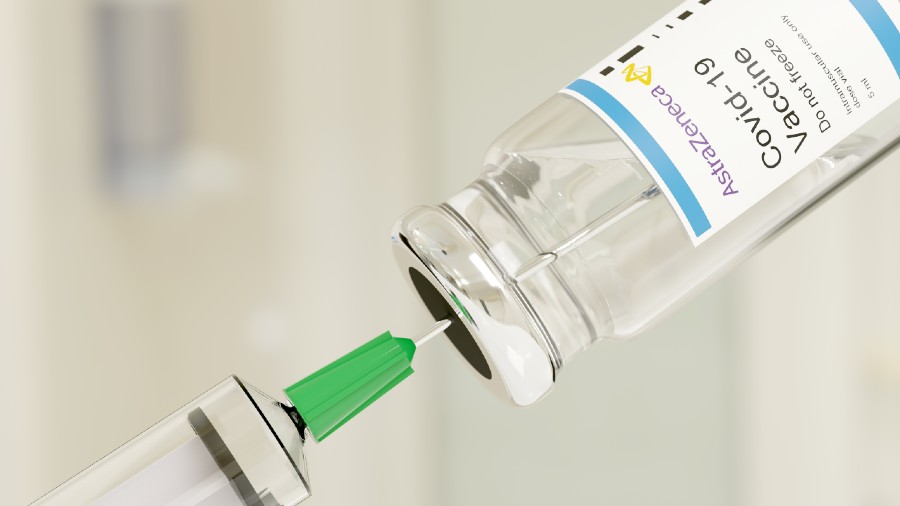The coronavirus vaccine developed by AstraZeneca and the University of Oxford provided strong protection against Covid-19 in a large clinical trial in the US, completely preventing the worst outcomes from the disease while causing no serious side effects, according to results announced on Monday.
The findings, announced in a news release from AstraZeneca, may help shore up global confidence in the vaccine, which was shaken this month when more than a dozen countries, mostly in Europe, temporarily suspended the use of the shot over concerns about possible rare side effects.
The trial, involving more than 32,000 participants, was the largest test of its kind for the shot. The vaccine was 79 per cent effective overall in preventing symptomatic infections, higher than observed in previous clinical trials. The trial also showed that the vaccine offered strong protection for older people, who had not been as well-represented in earlier studies.
But the fresh data may not make much difference in the US, where the vaccine is not yet authorised and may not be needed.
AstraZeneca wins authorisation for emergency use in the US based on the new results, the vaccine is unlikely to become available before May, when federal officials predict that three vaccine manufacturers that already have authorisation will be producing enough doses for all the nation’s adults.
Even so, industry analysts said the results were better than expected, a heartening turn for a shot whose low cost and simple storage requirements have made it the workhorse of the drive to vaccinate the world.
The results also helped a campaign by European lawmakers to buttress people’s confidence in the shot, one that has featured many political leaders themselves being injected in recent days.
“The results from the US trial of the Oxford-AstraZeneca vaccine give strong evidence that the vaccine is both safe and highly effective,” Matt Hancock, the British health secretary, said on Monday. “Vaccines are our way out of this, so when you get the call, get the jab.”
AstraZeneca said on Monday that it would continue to analyze the new data and prepare to apply “in the coming weeks” for emergency authorisation from the Food and Drug Administration. The vaccine has already been approved in more than 70 countries, but clearance from American regulators, if the company can secure it, would bolster the vaccine’s reputation globally.
The new data has been highly anticipated because of the expectation that the trial, designed to meet FDA standards, would be the best measure of how well the vaccine works.
The shot is the backbone of vaccine rollouts in many poor and middle-income countries.
“This is the vaccine that will likely vaccinate the world,” Ashish Jha, the dean of the Brown University School of Public Health, wrote on Twitter on Monday, adding: “If you were rooting for global vaccination, this is a good morning.”
The interim results announced on Monday were based on 141 Covid-19 cases that had turned up in volunteers. Two-thirds of participants were given the vaccine, with doses spaced four weeks apart, and the rest received a saline placebo. Volunteers were recruited from Chile and Peru in addition to the United States.
None of the volunteers who got the vaccine developed severe symptoms or had to be hospitalised, a major selling point for the shot. However, AstraZeneca did not disclose the number of volunteers who got the placebo who developed severe Covid-19 or had to be hospitalised, making it difficult to know how statistically powerful those findings are.
The new results could help the vaccine recover from the safety scare it has faced in Europe. Regulators there initiated a safety review after a small number of people who had recently been inoculated developed blood clots and abnormal bleeding.
Most countries are now restarting use of the shot, with some restrictions and a new warning label, after the EU’s drug regulator said on Thursday that a review determined that the vaccine was safe.
Nonetheless, the speed at which several nations suspended use of the vaccine reflected a skittishness about its safety and effectiveness that contrasts sharply with the confidence that has been shown in other vaccines.
Trust in the vaccine has tumbled in Germany, France, Italy, Spain and, to a lesser degree, Britain.
Participants who received the vaccine in the trial had no increased risk of blood clots or related illnesses. And a specific search turned up no cases of cerebral venous sinus thrombosis — blood clots in the brain that can result in dangerous bleeding — that raised some of the most serious concerns in Europe.
Michael Head, a senior research fellow in global health at the University of Southampton, said that the results could allay concerns globally. He said that he had received messages in recent days from colleagues in Ghana, fretting about how to explain the safety scare to people.
“Because of the slight battering the AstraZeneca vaccine has taken over the last few weeks — and particularly in the last week or two in Europe — new data showing it is safe and effective is, if you’ll excuse the phrase, a good shot in the arm,” he said.
New York Times News Service











